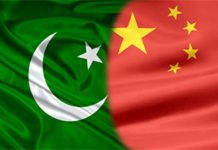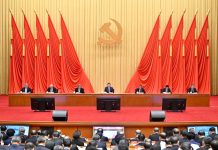BEIJING: The “Post-COVID Regional Cooperation: New Opportunities and New Actions” webinar held by the South & Southeast Asian University Network (S&SE ASIAN UN) kicked off at Yunnan University (YNU) on Oct 21, focusing on the impact of the COVID-19 epidemic on regional cooperation, especially in the fields of trade cooperation, investment cooperation, as well as international institutions.
A total of 24 scholars from 20 universities and research institutions in 13 countries, including Bangladesh, Pakistan, the Philippines, India, Canada, and South Korea, gave well-received speeches at the webinar.
Experts stressed that the on-going COVID-19 epidemic has posed great challenges to South Asia, Southeast Asia, and the entire world. They noted that the coronavirus knows no borders, nationalities, or beliefs, adding that the most profound lesson from this pandemic is that unity, cooperation, and scientific rationality are the only way out instead of pursuing a beggar-thy-neighbor policy or blaming others.
They added that anti-globalization sentiments and decoupling will not only endanger the economic and social development of all countries, but will also threaten the lives of people around the world. Human civilization cannot rely on the Law of the Jungle and Social Darwinism, but through extensive consultations, joint contributions, and shared benefits.
Experts noted that responses to the COVID-19 epidemic and the measures that were enacted to combat it showed that regional cooperation is not out of date, but should be further strengthened. The prevention and control of the COVID-19 epidemic will be more effective with strong regional cooperation.
Non-traditional security issues represented by COVID-19 have the characteristics of transcending national boundaries and transcending ideology. Countries in the region should take the opportunity to learn lessons from the COVID-19 epidemic and further promote cooperation in public health, as well as other non-traditional security fields. – Agencies






